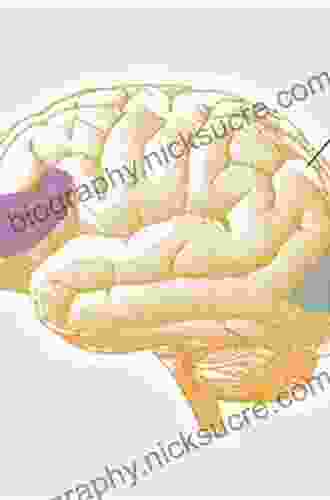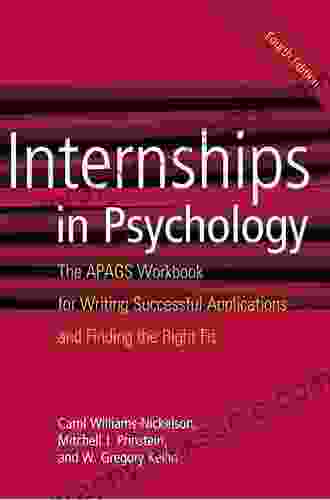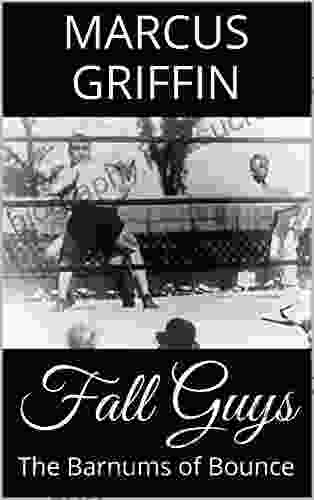The Astonishing Alchemy of Reading in the Brain: A Cognitive Symphony

The act of reading, a seemingly mundane activity, belies a symphony of intricate processes within the enigmatic terrain of the human brain. It is a transformative process that not only imparts knowledge but reshapes the neuronal landscape, weaving a tapestry of cognitive marvels. This article delves into the fascinating interplay between reading and the brain, exploring its profound impact on language processing, memory formation, and imagination.
Decoding the Written Word
The initial stage of reading, known as decoding, involves the conversion of written symbols into meaningful units. This intricate process begins in the primary visual cortex, where the brain interprets the shapes and patterns of letters. From there, visual information is relayed to the angular gyrus, a region responsible for mapping graphemes (written symbols) to phonemes (sounds). The brain then utilizes this phonological representation to access the lexicon, a vast repository of words stored in our memory.
4.6 out of 5
| Language | : | English |
| File size | : | 10036 KB |
| Text-to-Speech | : | Enabled |
| Screen Reader | : | Supported |
| Enhanced typesetting | : | Enabled |
| Word Wise | : | Enabled |
| Print length | : | 400 pages |
Language Processing
Once the brain has decoded the written word, the process of language processing unfolds. The Wernicke's area, situated in the temporal lobe, becomes the central hub of this activity. It is responsible for comprehending the meaning of words, phrases, and sentences. Comprehending meaning involves several sub-processes, including recognizing grammatical structures, inferring relationships between words, and activating relevant semantic knowledge. The brain draws upon its vast lexicon and encyclopedic knowledge to interpret the written text and derive its intended message.
Memory Formation
Reading plays a pivotal role in memory formation, particularly in creating long-term memories. The hippocampus, a brain structure essential for declarative memory (explicitly recalled memories),is activated during reading. It encodes new information, linking it to existing knowledge networks. The more deeply a text is processed, the stronger the memory trace becomes. Over time, repeated encounters with a text can lead to the formation of permanent memories that can be effortlessly retrieved.
Imagination and Empathy
Reading transcends the realm of mere language processing and memory formation; it also sparks the potent flames of imagination and empathy. The default mode network, a constellation of brain regions active during mind-wandering and self-reflection, becomes engaged while reading. This network enables readers to immerse themselves in the narrative, to experience the emotions of characters, and to envision the worlds created within the text. Through empathy, readers gain a deeper understanding of human nature and develop a broader perspective.
Cognitive Symphony
The act of reading is not confined to a single brain region but rather orchestrates a cognitive symphony involving multiple neural pathways and regions. The visual cortex, angular gyrus, Wernicke's area, hippocampus, and default mode network all play their part in this intricate process. Furthermore, reading is not a static activity but rather a dynamic interplay of perceptual, cognitive, and emotional processes, which are constantly refined and expanded with each encounter with the written word.
The Transformative Power of Reading
Reading has a profound impact on the developing brain, particularly in children. Studies have demonstrated that regular reading can increase vocabulary, improve comprehension skills, and enhance cognitive abilities. It fosters a love of learning, expands the imagination, and fosters empathy. In addition, reading has been shown to reduce stress, improve sleep, and boost overall well-being.
Reading is not a mere passive reception of information but rather an active and engaging cognitive process that reshapes the brain's architecture. It is a transformative alchemy that empowers us with knowledge, fosters our imagination, and deepens our connection to the human experience. As we continue our exploration of this captivating subject, we can only marvel at the extraordinary power of reading to unlock the limitless potential of our minds.
4.6 out of 5
| Language | : | English |
| File size | : | 10036 KB |
| Text-to-Speech | : | Enabled |
| Screen Reader | : | Supported |
| Enhanced typesetting | : | Enabled |
| Word Wise | : | Enabled |
| Print length | : | 400 pages |
Do you want to contribute by writing guest posts on this blog?
Please contact us and send us a resume of previous articles that you have written.
 Fiction
Fiction Non Fiction
Non Fiction Romance
Romance Mystery
Mystery Thriller
Thriller SciFi
SciFi Fantasy
Fantasy Horror
Horror Biography
Biography Selfhelp
Selfhelp Business
Business History
History Classics
Classics Poetry
Poetry Childrens
Childrens Young Adult
Young Adult Educational
Educational Cooking
Cooking Travel
Travel Lifestyle
Lifestyle Spirituality
Spirituality Health
Health Fitness
Fitness Technology
Technology Science
Science Arts
Arts Crafts
Crafts DIY
DIY Gardening
Gardening Petcare
Petcare Cheryl Erwin
Cheryl Erwin Elizabeth Lockwood
Elizabeth Lockwood Robert Ardrey
Robert Ardrey Crystal Duffy
Crystal Duffy Boy Scouts Of America
Boy Scouts Of America David Starbuck Smith
David Starbuck Smith Ian Leslie
Ian Leslie Mike Allison
Mike Allison Linda Welters
Linda Welters John Aldridge
John Aldridge Fred Mitchell
Fred Mitchell Lynn Rosen
Lynn Rosen Julie Buxbaum
Julie Buxbaum Jenna Helland
Jenna Helland Denton Salle
Denton Salle John Garrity
John Garrity Cait Stevenson
Cait Stevenson Mick Conefrey
Mick Conefrey Michelle Rigler
Michelle Rigler Beau Miles
Beau Miles Barbara Rogoff
Barbara Rogoff Molly E Lee
Molly E Lee William H Frey
William H Frey Bob Holtzman
Bob Holtzman Charlotte Booth
Charlotte Booth Jennifer Traig
Jennifer Traig Dr Faith G Harper
Dr Faith G Harper Reprint Edition Kindle Edition
Reprint Edition Kindle Edition Rhonda Belle
Rhonda Belle Sharon Dukett
Sharon Dukett Pavla Kesslerova
Pavla Kesslerova Hongyu Guo
Hongyu Guo Leah Cullis
Leah Cullis David Abram
David Abram Barbara Mertz
Barbara Mertz Mykel Hawke
Mykel Hawke Rachelle Zukerman
Rachelle Zukerman Becca Anderson
Becca Anderson Casey Watson
Casey Watson Suzanne Leonhard
Suzanne Leonhard Jennifer Pharr Davis
Jennifer Pharr Davis Ellen Lewin
Ellen Lewin Editors Of Southern Living Magazine
Editors Of Southern Living Magazine Holger Schutkowski
Holger Schutkowski Tim Marshall
Tim Marshall Jane Hardwicke Collings
Jane Hardwicke Collings Pat Shipman
Pat Shipman Roy Porter
Roy Porter Jack Andraka
Jack Andraka Kindle Edition
Kindle Edition Daniel P Huerta
Daniel P Huerta Percy Boomer
Percy Boomer Graham R Gibbs
Graham R Gibbs Erica B Marcus
Erica B Marcus Debbie M Schell
Debbie M Schell Jane Butel
Jane Butel Catherine M Cameron
Catherine M Cameron Frederick Douglass Opie
Frederick Douglass Opie Martin Dugard
Martin Dugard Yuki Mano
Yuki Mano Ralph Galeano
Ralph Galeano Stephen K Sanderson
Stephen K Sanderson Melissa Gomes
Melissa Gomes David A Bogart
David A Bogart Geert Hofstede
Geert Hofstede Beth Miller
Beth Miller Suzanne Wylde
Suzanne Wylde Brian Gilbert
Brian Gilbert Randy Baker
Randy Baker Michael Palin
Michael Palin Jim Fay
Jim Fay Clayton King
Clayton King Bonnie Tsui
Bonnie Tsui Eric Franklin
Eric Franklin James Kilgo
James Kilgo Cindy Post Senning
Cindy Post Senning Daniel M Koretz
Daniel M Koretz Rachel Dash
Rachel Dash Violet Moller
Violet Moller Steve Biddulph
Steve Biddulph Timothy Pakron
Timothy Pakron Trish Kuffner
Trish Kuffner Proper Education Group
Proper Education Group Visual Arts
Visual Arts Jeff Alt
Jeff Alt David Burch
David Burch Emma Brockes
Emma Brockes John Whitman
John Whitman Leon Mccarron
Leon Mccarron Monta Z Briant
Monta Z Briant Wanda Priday
Wanda Priday Linda Carroll
Linda Carroll Autumn Carpenter
Autumn Carpenter Meghan L Marsac
Meghan L Marsac Jay Abramson
Jay Abramson George Macdonald
George Macdonald Mitch Prinstein
Mitch Prinstein Fabien Clavel
Fabien Clavel S E Hinton
S E Hinton Eric Engle
Eric Engle Bill Mckibben
Bill Mckibben Barbara Illowsk
Barbara Illowsk Beebe Bahrami
Beebe Bahrami Bridget Flynn Walker Phd
Bridget Flynn Walker Phd Ben Goldacre
Ben Goldacre Margaret Owen
Margaret Owen Arny Alberts
Arny Alberts Mia Scotland
Mia Scotland Monica Hesse
Monica Hesse Scott Reed
Scott Reed Jutta Schickore
Jutta Schickore Ryan A Pedigo
Ryan A Pedigo Breanna Hayse
Breanna Hayse Bryan Peterson
Bryan Peterson Ellen Notbohm
Ellen Notbohm T H White
T H White Kara Tippetts
Kara Tippetts Achille Rubini
Achille Rubini Charlotte Browne
Charlotte Browne Edith Grossman
Edith Grossman Ben Sedley
Ben Sedley William Wasserman
William Wasserman Donald Frias
Donald Frias Rick Joyner
Rick Joyner Leslie Stager
Leslie Stager Dr Craig Malkin
Dr Craig Malkin Dave Rearwin
Dave Rearwin Joseph Schmuller
Joseph Schmuller Barry Johnston
Barry Johnston Alastair Hannay
Alastair Hannay Justin Sirois
Justin Sirois Robin Nixon
Robin Nixon Sampson Davis
Sampson Davis Nicholas Wolterstorff
Nicholas Wolterstorff Temple West
Temple West Kate Williams
Kate Williams Daniel J Barrett
Daniel J Barrett Richard Chun
Richard Chun Susan Scott
Susan Scott Helen Kara
Helen Kara David Thomas
David Thomas Susan Dennard
Susan Dennard Shannon Reilly
Shannon Reilly Dan Golding
Dan Golding Jeff Belanger
Jeff Belanger Jill Brown
Jill Brown Harvey Wittenberg
Harvey Wittenberg Kara Goucher
Kara Goucher Tami Anastasia
Tami Anastasia Gay Robins
Gay Robins Jean Smith
Jean Smith Nick Bollettieri
Nick Bollettieri Gordon H Chang
Gordon H Chang Kit Yates
Kit Yates Barzin Pakandam
Barzin Pakandam Steven Hawthorne
Steven Hawthorne Richard H Immerman
Richard H Immerman Jack Newman
Jack Newman Sam Cowen
Sam Cowen John Lister Kaye
John Lister Kaye Nicole Martin
Nicole Martin Barbara Neiman
Barbara Neiman John J Robinson
John J Robinson Barry Rhodes
Barry Rhodes Ray Comfort
Ray Comfort Sergei Urban
Sergei Urban Malcolm Hebron
Malcolm Hebron Ronald Wheeler
Ronald Wheeler Gabriyell Sarom
Gabriyell Sarom Marco Grandis
Marco Grandis Chiara Sparks
Chiara Sparks Stephen J Bavolek
Stephen J Bavolek Daniel T Willingham
Daniel T Willingham Debra Kilby
Debra Kilby Vanessa Garbin
Vanessa Garbin Daniel S Lobel Phd
Daniel S Lobel Phd Bill Milliken
Bill Milliken Tara Brach
Tara Brach Arnold G Nelson
Arnold G Nelson Otto Scharmer
Otto Scharmer Gerald Beaudry
Gerald Beaudry Sam Kean
Sam Kean Patrick Sweeney
Patrick Sweeney Ascencia
Ascencia Prince Asare
Prince Asare Vanessa Ogden Moss
Vanessa Ogden Moss David Jamieson Bolder
David Jamieson Bolder Ben Collins
Ben Collins Mark Twain
Mark Twain David Taylor
David Taylor Julian I Graubart
Julian I Graubart Nadine Hays Pisani
Nadine Hays Pisani Robin Mcmillan
Robin Mcmillan Noah Brown
Noah Brown Farzana Nayani
Farzana Nayani Erik J Brown
Erik J Brown Bobbie Faulkner
Bobbie Faulkner W Hamilton Gibson
W Hamilton Gibson Scott Malthouse
Scott Malthouse Ryan Higa
Ryan Higa Howard Zinn
Howard Zinn Charles River Editors
Charles River Editors Sport Hour
Sport Hour Barry Rabkin
Barry Rabkin Bagele Chilisa
Bagele Chilisa Sara Shepard
Sara Shepard Laura Ingalls Wilder
Laura Ingalls Wilder Matt Taddy
Matt Taddy Catherine J Allen
Catherine J Allen Chris Cage
Chris Cage Nichole Carpenter
Nichole Carpenter Mary A Fristad
Mary A Fristad Chase Hill
Chase Hill Mark Young
Mark Young Graham Farmelo
Graham Farmelo Steven Bell
Steven Bell Rachel Morgan
Rachel Morgan Peter K Tyson
Peter K Tyson Khurshed Batliwala
Khurshed Batliwala Alexandra Andrews
Alexandra Andrews Vincent Bossley
Vincent Bossley R L Medina
R L Medina Kathleen Masters
Kathleen Masters Dr Michael P Masters
Dr Michael P Masters Ron Lemaster
Ron Lemaster Barry J Kemp
Barry J Kemp Farley Mowat
Farley Mowat Luke Gilkerson
Luke Gilkerson Susan Nance
Susan Nance Craig Romano
Craig Romano Christine Kenneally
Christine Kenneally Paul Van Lierop
Paul Van Lierop Ernie Morton
Ernie Morton Deanna Roy
Deanna Roy Dustin Hansen
Dustin Hansen James Duthie
James Duthie Elliott Vandruff
Elliott Vandruff Isabel Fonseca
Isabel Fonseca Ken Xiao
Ken Xiao Victor Seow
Victor Seow Pearson Education
Pearson Education Shayla Black
Shayla Black Jenny Chandler
Jenny Chandler Jeremy Sweet
Jeremy Sweet Chadd Vanzanten
Chadd Vanzanten Janis Keyser
Janis Keyser Bernard Marr
Bernard Marr Gary Lincoff
Gary Lincoff Jennifer Estep
Jennifer Estep Benita Bensch
Benita Bensch Mike Loades
Mike Loades Valerie Pollmann R
Valerie Pollmann R Tom Miller
Tom Miller Mike Commito
Mike Commito Leonard M Adkins
Leonard M Adkins Erica Schultz
Erica Schultz Massimo Cossu Nicola Pirina
Massimo Cossu Nicola Pirina Bashir Hosseini Jafari
Bashir Hosseini Jafari Basudeb Bhatta
Basudeb Bhatta Nancy E Willard
Nancy E Willard Titus M Kennedy
Titus M Kennedy Barry Glassner
Barry Glassner Jamie Margolin
Jamie Margolin Jade Barrett
Jade Barrett Max Marchi
Max Marchi Smart Reads
Smart Reads Mackenzi Lee
Mackenzi Lee Steven Rinella
Steven Rinella Jessica F Shumway
Jessica F Shumway Linnea Dunne
Linnea Dunne Betty Stone
Betty Stone William Byers
William Byers Print Replica Kindle Edition
Print Replica Kindle Edition Allan V Horwitz
Allan V Horwitz Simon Spurrier
Simon Spurrier Rowan Jacobsen
Rowan Jacobsen Anthony Edwards
Anthony Edwards Martin Sternstein
Martin Sternstein James M Collins
James M Collins Jonathan Bergmann
Jonathan Bergmann Joseph Epes Brown
Joseph Epes Brown Barbara Bassot
Barbara Bassot Hunbatz Men
Hunbatz Men Lawrence Baldassaro
Lawrence Baldassaro Rob Hutchings
Rob Hutchings Cara Koscinski
Cara Koscinski Emma Walker
Emma Walker Mark H Newman
Mark H Newman Chris Bennett
Chris Bennett Master Gamer
Master Gamer Julie L Spencer
Julie L Spencer Hill Gates
Hill Gates Cary J Griffith
Cary J Griffith Lock Gareth
Lock Gareth Babu The Panda
Babu The Panda Wayne B Chandler
Wayne B Chandler Blair Braverman
Blair Braverman Ping Li
Ping Li Charles Soule
Charles Soule Muhammad Zulqarnain
Muhammad Zulqarnain T C Edge
T C Edge Jessica Smartt
Jessica Smartt Hollis Lance Liebman
Hollis Lance Liebman Bb
Bb Craig Martin
Craig Martin Candice Davie
Candice Davie Eric Leiser
Eric Leiser Jaymin Eve
Jaymin Eve Richard Harris
Richard Harris Jonathan Kellerman
Jonathan Kellerman Carlo Collodi
Carlo Collodi Mina Lebitz
Mina Lebitz Eugene V Resnick
Eugene V Resnick Joshua Hammer
Joshua Hammer Tim Ingold
Tim Ingold Charlie Shamp
Charlie Shamp Christopher Taylor Ma Lmft
Christopher Taylor Ma Lmft Edward Lee
Edward Lee Thomas Bulfinch
Thomas Bulfinch S K Gupta
S K Gupta Dave Karczynski
Dave Karczynski Karen Bush
Karen Bush Scott Westerfeld
Scott Westerfeld Diane Cardwell
Diane Cardwell Scott Mactavish
Scott Mactavish Craig Lambert
Craig Lambert P J Agness
P J Agness James Randi
James Randi Leia Stone
Leia Stone Joshua G Shifrin
Joshua G Shifrin Michael Wood
Michael Wood Spencer Wells
Spencer Wells David Klausmeyer
David Klausmeyer Brian Switek
Brian Switek Catherine Shainberg
Catherine Shainberg Emily Chappell
Emily Chappell Brad Burns
Brad Burns Mark Kurlansky
Mark Kurlansky Baruch Englard
Baruch Englard Kam Knight
Kam Knight Samantha Fitts
Samantha Fitts John Kimantas
John Kimantas Macauley Lord
Macauley Lord Jude Currivan
Jude Currivan Kyle Butler
Kyle Butler Cynthia Levinson
Cynthia Levinson Toby A H Wilkinson
Toby A H Wilkinson Ron Avery
Ron Avery John G Robertson
John G Robertson John D Barrow
John D Barrow Chris Mooney
Chris Mooney Guy P Harrison
Guy P Harrison W Scott Elliot
W Scott Elliot Barbara Taylor
Barbara Taylor Kenneth Wilgus Phd
Kenneth Wilgus Phd Barbara Ann Kipfer
Barbara Ann Kipfer Gordon Witteveen
Gordon Witteveen John Henry Phillips
John Henry Phillips St Louis Post Dispatch
St Louis Post Dispatch Richard J Dewhurst
Richard J Dewhurst Stephanie Fritz
Stephanie Fritz Donald R Gallo
Donald R Gallo Marie Rutkoski
Marie Rutkoski John Sandford
John Sandford Geoffrey Finch
Geoffrey Finch Diane Musho Hamilton
Diane Musho Hamilton Robin Knox Johnston
Robin Knox Johnston David Beaupre
David Beaupre Constanze Niedermaier
Constanze Niedermaier Chuck Missler
Chuck Missler Mike High
Mike High Chris Eberhart
Chris Eberhart Sean Mcindoe
Sean Mcindoe John C Norcross
John C Norcross Mark Rashid
Mark Rashid Yang Kuang
Yang Kuang Nick Neely
Nick Neely Beau Bradbury
Beau Bradbury Rob Rains
Rob Rains Barry Friedman
Barry Friedman Lily Collins
Lily Collins Joseph Alton M D
Joseph Alton M D John H Mcwhorter
John H Mcwhorter Mike Massie
Mike Massie Robert A Baruch Bush
Robert A Baruch Bush Eliza Reid
Eliza Reid James C Radcliffe
James C Radcliffe Sam Nadler
Sam Nadler Dan R Lynch
Dan R Lynch Basu Shanker
Basu Shanker James Duggan
James Duggan J Bruce Brackenridge
J Bruce Brackenridge Stan Tekiela
Stan Tekiela Colleen Alexander Roberts
Colleen Alexander Roberts Laura Pavlov
Laura Pavlov Siddhartha Rao
Siddhartha Rao Dacher Keltner
Dacher Keltner Peter Martin
Peter Martin Stanislas Dehaene
Stanislas Dehaene Edwin R Sherman
Edwin R Sherman Richard Meadows
Richard Meadows Marshall Jon Fisher
Marshall Jon Fisher Peter Wacht
Peter Wacht Glenna Mageau
Glenna Mageau Robert Hogan
Robert Hogan Mark Mayfield
Mark Mayfield Rebecca Solnit
Rebecca Solnit Helen Fisher
Helen Fisher Rachel Smith
Rachel Smith Barbara Gastel
Barbara Gastel Brandon Royal
Brandon Royal Jen Houcek
Jen Houcek Bruce Pascoe
Bruce Pascoe Clifford Herriot
Clifford Herriot V B Alekseev
V B Alekseev Larry Dane Brimner
Larry Dane Brimner Gary Soto
Gary Soto Barbara Russell
Barbara Russell Barry Burd
Barry Burd Oliver T Spedding
Oliver T Spedding Steve Burrows
Steve Burrows Thomas French
Thomas French Diane Yancey
Diane Yancey Jenn Mcallister
Jenn Mcallister Burt L Standish
Burt L Standish Yuval Noah Harari
Yuval Noah Harari Mark Ellyatt
Mark Ellyatt Jesse Liberty
Jesse Liberty Shmuel Peerless
Shmuel Peerless Maha Alkurdi
Maha Alkurdi Lew Freedman
Lew Freedman Marc Loy
Marc Loy Conor Nolan
Conor Nolan Jayanti Tambe
Jayanti Tambe Joanne Glenn
Joanne Glenn Rebecca Rupp
Rebecca Rupp Nicholas Sparks
Nicholas Sparks Dustin Salomon
Dustin Salomon Jake Anderson
Jake Anderson Nick Townsend
Nick Townsend Barbara Kennard
Barbara Kennard Tori Day
Tori Day Richard Weissbourd
Richard Weissbourd David Cockburn
David Cockburn Philip Maffetone
Philip Maffetone Nina Manning
Nina Manning C R Hallpike
C R Hallpike Lynn Mann
Lynn Mann Eddie Merrins
Eddie Merrins Roanne Van Voorst
Roanne Van Voorst Grey Owl
Grey Owl Kate Darling
Kate Darling Mike Stanton
Mike Stanton Lewis Thomas
Lewis Thomas Ben Povlow
Ben Povlow Reelav Patel
Reelav Patel Jeffrey Jensen Arnett
Jeffrey Jensen Arnett Charles Buist
Charles Buist J C Cervantes
J C Cervantes F William Lawvere
F William Lawvere Stefan Ecks
Stefan Ecks Sam Harris
Sam Harris Richard Scott
Richard Scott Danny Staple
Danny Staple J Michael Veron
J Michael Veron Kenton Kroker
Kenton Kroker Elizabeth George Speare
Elizabeth George Speare Thomas Lumley
Thomas Lumley Melissa Haag
Melissa Haag James Syhabout
James Syhabout Mike Swedenberg
Mike Swedenberg Jean Illsley Clarke
Jean Illsley Clarke Paul Doiron
Paul Doiron Ryan T White
Ryan T White James Koeper
James Koeper Janna Levin
Janna Levin David Aretha
David Aretha Scarlett Thomas
Scarlett Thomas Jim Wharton
Jim Wharton John Quick
John Quick Joanna Hunt
Joanna Hunt Christopher L Heuertz
Christopher L Heuertz Buddy Levy
Buddy Levy Rob Pope
Rob Pope
Light bulbAdvertise smarter! Our strategic ad space ensures maximum exposure. Reserve your spot today!
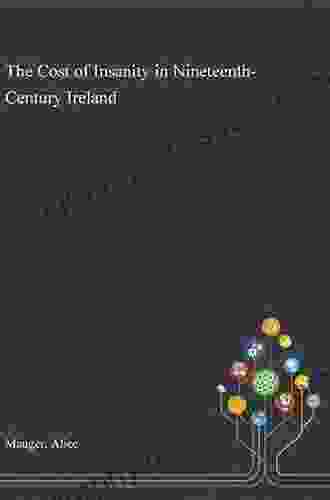
 Dan HendersonThe Cost of Insanity in Nineteenth Century Ireland: A Haunting History of...
Dan HendersonThe Cost of Insanity in Nineteenth Century Ireland: A Haunting History of... Victor HugoFollow ·9.3k
Victor HugoFollow ·9.3k Evan SimmonsFollow ·17.7k
Evan SimmonsFollow ·17.7k Raymond ParkerFollow ·7.2k
Raymond ParkerFollow ·7.2k Damon HayesFollow ·19.7k
Damon HayesFollow ·19.7k Carlos DrummondFollow ·8.3k
Carlos DrummondFollow ·8.3k Clay PowellFollow ·18.2k
Clay PowellFollow ·18.2k Donovan CarterFollow ·11.9k
Donovan CarterFollow ·11.9k Bill GrantFollow ·18.7k
Bill GrantFollow ·18.7k

 Israel Bell
Israel BellEmbark on an Epic 160-Mile Expedition for Charity on the...
Prepare yourself for an...
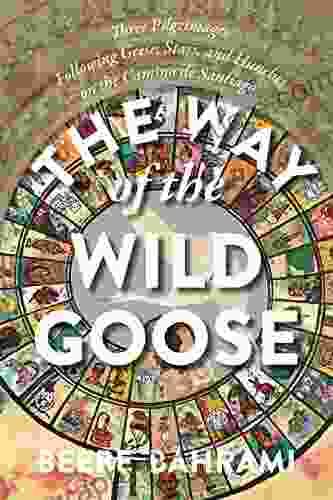
 Josh Carter
Josh CarterThe Way of the Wild Goose: A Journey of Embodied Wisdom...
The Way of the Wild Goose is an ancient...

 Allen Parker
Allen ParkerMastering the Art of Bean Fly Casting: A Comprehensive...
Fly fishing,...
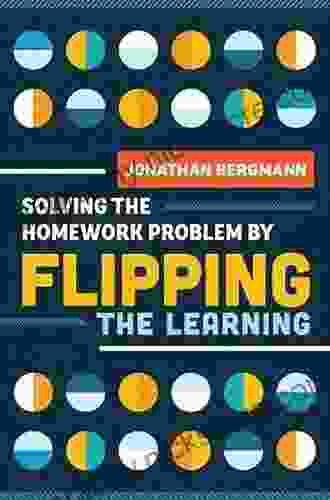
 Aaron Brooks
Aaron BrooksSolving the Homework Problem by Flipping the Learning
What is flipped...

 Fletcher Mitchell
Fletcher MitchellThe Jane Butel Library: A Renewed Source of Knowledge and...
The Jane Butel...
4.6 out of 5
| Language | : | English |
| File size | : | 10036 KB |
| Text-to-Speech | : | Enabled |
| Screen Reader | : | Supported |
| Enhanced typesetting | : | Enabled |
| Word Wise | : | Enabled |
| Print length | : | 400 pages |


